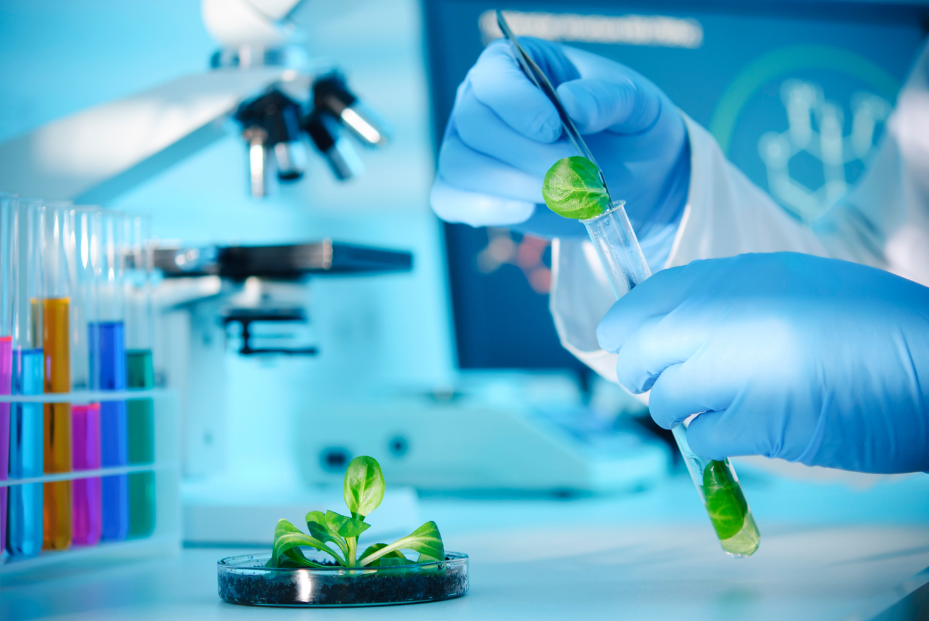Expert Witness – Biotechnologies
Biotechnology is a rapidly developing field that combines biological sciences with technology to create new solutions in medicine, agriculture, environmental science, and more. From genetic engineering to biopharmaceuticals, biotechnology is changing industries and our future. As these technologies progress, so does the need for specialist expertise in patent cases, product safety, regulatory compliance, and intellectual property. In these situations, expert witnesses in biotechnology are critical, providing the technical knowledge essential to getting a fair outcome.
What Are Biotechnologies?
Biotechnologies are the application of biological processes, organisms, or systems to create new products or improve existing ones. Biotechnology is a broad field that includes genetic engineering, cell culture, bioinformatics, and bioprocessing. For example, biotechnology has led to breakthroughs in medicine in gene therapies, vaccines, and targeted cancer treatments. In agriculture, biotechnologies have produced genetically modified crops that are more resistant to pests and environmental stress. Environmental biotechnology is another big area where processes like bio-remediation use living organisms to remove pollutants from soil and water. These examples show biotechnology’s ability to solve some of the world’s biggest problems, from healthcare to food security to environmental sustainability.
Credentials of Experts in Biotechnology
Given the complexity and specialization in biotechnology, experts in this field must have solid academic backgrounds, industry experience, and knowledge of regulatory and safety standards. Common qualifications for biotechnology experts are:
- Advanced Degrees: Biotechnology experts usually have a Ph.D. or advanced degrees in molecular biology, genetics, biochemistry, or biomedical engineering. Coursework and research in these areas provide a foundation for understanding biotechnology’s scientific principles and technical processes.
- Specialization in a Relevant Area: Many biotechnology experts specialize in a particular area, such as genetic engineering, biopharmaceuticals, or bioinformatics. This specialist knowledge allows them to provide detailed technical knowledge on highly technical topics relevant to litigation, from the molecular structure of a biopharmaceutical to the software algorithms used in bioinformatics.
- Industry Experience: Hands-on experience in biotechnology research, development, and manufacturing is key. Experts with industry backgrounds know the practicalities of biotech applications and the challenges companies face in product development, testing, and scaling up technologies for commercial use.
- Knowledge of Regulatory Compliance: Biotechnology products, especially those related to health and agriculture, are heavily regulated by agencies like the U.S. Food and Drug Administration (FDA) and the Environmental Protection Agency (EPA). Knowledge of the regulatory frameworks and compliance requirements is essential for experts to assess compliance and support litigation on safety and efficacy.
- Research and Publications: Many biotechnology experts have published peer-reviewed research or hold patents that demonstrate their expertise and contribution to the field. Publications on topics like gene therapy, biomanufacturing, and environmental biotechnology add credibility to an expert.
- Professional Affiliations: Membership in organizations like the Biotechnology Innovation Organization (BIO) or the American Society for Microbiology (ASM) keeps experts up to date with industry standards, research, and developments and supports their credibility as expert witnesses.
Types of Litigation in Biotechnology
The breadth of biotechnology means legal disputes can occur in many areas. Some of the most common types of litigation in biotechnology are:
- Patent Infringement and Intellectual Property Disputes: Intellectual property is paramount in biotechnology, where innovations are often patented. Disputes can arise over ownership of genetic sequences, bioprocessing techniques, or bioinformatics algorithms. Expert witnesses will determine whether one party’s technology infringes on another’s patent and assess the uniqueness and validity of the claimed intellectual property.
- Product Liability and Safety Cases: Biotechnologies, especially those in pharmaceuticals and genetic engineering, can have complex safety and efficacy issues. In cases where biotech products are alleged to have caused harm, experts will assess product design, testing procedures, and manufacturing practices to determine whether the product met industry safety standards.
- Regulatory Compliance: The FDA and EPA have strict regulations, so biotechnology companies must ensure their products and processes comply with the legal standards. Non-compliance cases often relate to mislabeling, clinical trial errors, or unapproved modifications, and may require expert witnesses to determine whether the regulatory guidelines were followed.
- Environmental Litigation: Biotechnology is being applied in environmental solutions like bioremediation and genetically modified organisms (GMOs). Litigation can arise over environmental impact, and experts will assess the ecological effects, genetic stability, and contamination risks associated with biotechnological solutions.
- Contract Disputes in Research and Development: Biotechnology development involves partnerships and contractual agreements. Disputes can arise when one party alleges a breach, such as failure to meet development milestones, unauthorized use of intellectual property, or mismanagement of research data. Expert witnesses will determine if contract terms were met according to industry standards and agreed-upon terms.
How an Expert Witness in Biotechnology Can Help Companies
Expert witnesses in biotechnology are essential in litigation. They bridge the gap between technical processes and legal proceedings, providing critical information, clarity, and support for companies involved in biotech disputes.
- Technical Analysis: Biotechnology involves complex scientific principles that are difficult for non-experts to understand. Expert witnesses will do the technical analysis and explain the science and data in plain language to support or oppose claims.
- Patent Validation and Infringement Analysis: Intellectual property is one of the most valuable assets for biotechnology companies. Expert witnesses will determine the uniqueness of a patented technology, whether another company’s process infringes on existing patents, and provide detailed comparisons to support or oppose a company’s claim.
- Product Safety and Compliance Review: Safety is vital in biotechnology, especially regarding human health or environmental impact. Experts in biotechnology will determine if a company’s product met safety standards during development and manufacturing, a critical factor in product liability cases.
- Guidance on Regulatory Standards: Regulatory requirements are complex, especially in fast-moving fields like biotechnology. Expert witnesses with regulatory knowledge will determine whether companies followed the standards set by the FDA and EPA, and provide critical testimony in legal disputes.
- Credibility in Court: A biotechnology expert witness brings credibility to a case with their academic and industry background and reputation in the field. They will make technical points understandable and credible to judges, juries, and other stakeholders.
Summary
Biotechnology is changing industries, bringing new products and solutions to medicine, agriculture, and the environment. As this field grows, so do legal disputes related to intellectual property, product safety, regulatory compliance, and contract fulfillment. Expert witnesses in biotechnology are essential in these cases, providing technical expertise and industry knowledge to help companies navigate the legal landscape. Whether patent infringement, product safety, regulatory compliance, or biotechnology, experts are your go-to for fair and informed outcomes.
About LEC Partners (formerly LEC Partners)
LEC Partners was founded in 1995 and currently has over 180 experts worldwide. These working experts are renowned, hand-selected leaders, with over 97% holding advanced degrees and averaging over 30 years in their respective fields.
Have some questions?
Not sure where to start?
Let's start a conversation. We're here to help you navigate
the bioeconomy with confidence.


